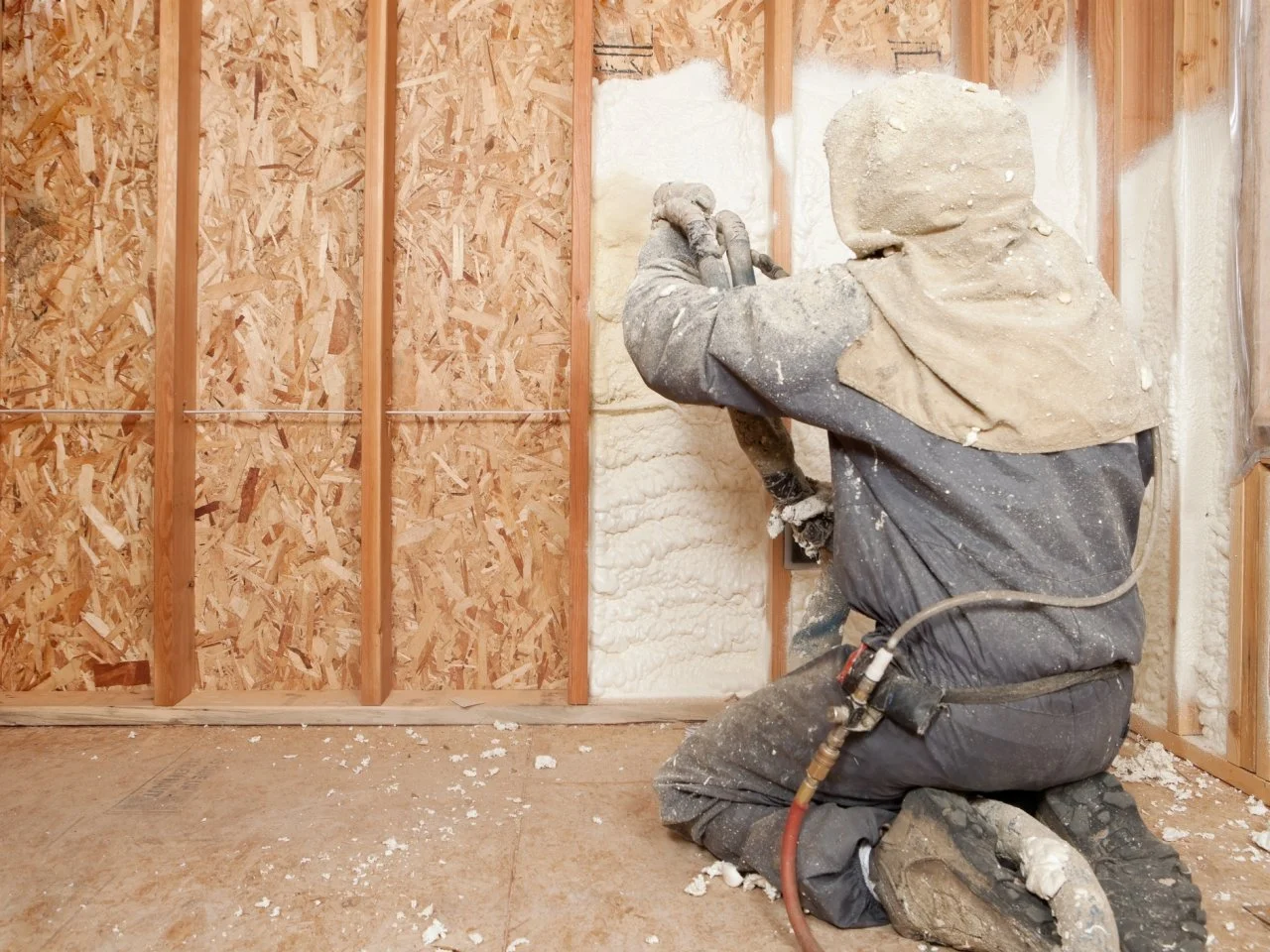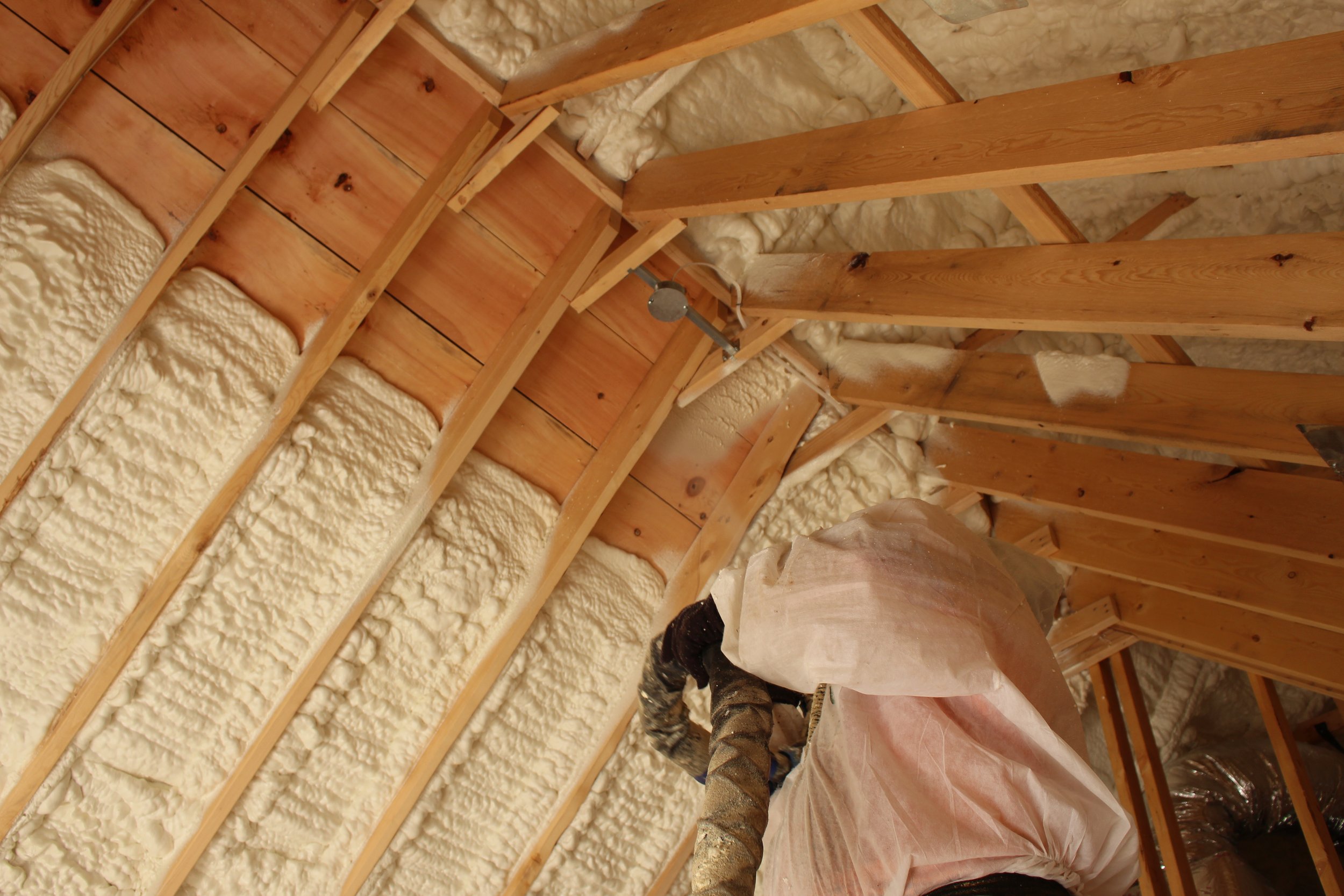Leading Applications of Spray Foam for Residential and Commercial Properties
Leading Applications of Spray Foam for Residential and Commercial Properties
Blog Article
Spray Foam: The Ultimate Option for Air Sealing and Insulation
Spray foam insulation has actually emerged as a leading remedy for reliable air securing and thermal insulation, using a special combination of properties that set it apart from conventional methods. Recognizing the full range of its advantages, setup procedures, and contrasts with various other insulation kinds is important for making notified choices.
What Is Spray Foam?
Spray foam is a functional insulation product that combines the principles of air sealing and thermal resistance to improve power effectiveness in buildings. Composed primarily of polyurethane or various other comparable compounds, spray foam is applied as a liquid that increases upon call with surface areas, developing a solid, continuous layer of insulation. This distinct residential or commercial property permits it to load voids, cracks, and voids that typical insulation materials might neglect, providing an exceptional air seal.
There are 2 primary types of spray foam: open-cell and closed-cell. Open-cell spray foam is lighter and extra flexible, providing exceptional audio absorption and a lower R-value per inch - Spray Foam. In contrast, closed-cell spray foam is denser, supplying a greater R-value, moisture resistance, and added structural integrity to developing parts
The application process typically entails specialized tools, making sure a seamless application that follows various substrates, including wood, concrete, and metal. This versatility makes spray foam appropriate for both brand-new constructions and retrofitting existing structures. Its capacity to produce an impermeable barrier substantially adds to decreasing energy usage and boosting interior air high quality, thereby making it a recommended option amongst homeowners and builders alike.
Benefits of Spray Foam Insulation
Among one of the most significant benefits of spray foam insulation is its outstanding capability to develop a continual air barrier, which properly decreases energy loss. Unlike standard insulation products, spray foam expands to load splits and spaces, making certain that air leak is drastically decreased. This characteristic not just enhances power performance however additionally results in lower energy expenses gradually.
Furthermore, spray foam insulation offers exceptional thermal resistance, contributing to a more secure interior setting. Its high R-value per inch enables for reliable insulation in restricted spaces, making it ideal for attic rooms, walls, and crawl spaces. The moisture-resistant buildings of spray foam aid protect against mold and mildew and mold development, advertising much healthier living problems.
Another important advantage of spray foam insulation is its sound-dampening high qualities (Spray Foam). It efficiently lowers noise transmission between spaces, producing a quieter and more comfortable home atmosphere. The resilience of spray foam additionally sticks out, as it does not sag or work out in time, keeping its performance throughout its lifespan
How Spray Foam Works
Recognizing just how spray foam insulation functions is crucial for valuing its performance in air securing and thermal resistance. Spray foam insulation includes two primary components: isocyanate and polyol material. When these parts are mixed, they undertake a chain reaction that triggers the material to broaden swiftly, developing a dense foam that fills voids, splits, and cavities.
As the foam broadens, it abides by surface areas, creating a closed seal that substantially lowers air infiltration. This characteristic makes spray foam insulation highly efficient at avoiding drafts and moisture penetration, which can lead to energy loss and damage gradually. Additionally, the closed-cell variation of spray foam provides premium thermal resistance because of its rigid structure, successfully lessening heat transfer.
The special homes of spray foam permit it to adhere to irregular surface areas, ensuring comprehensive protection and a seamless barrier. Because of this, spray foam insulation not just improves power effectiveness however additionally adds to enhanced indoor air top quality by minimizing the build-up of contaminants and allergens. Inevitably, understanding the technicians behind spray foam highlights its role as a premium selection for insulation and air sealing in both property and commercial applications.
Installation Process Review

Before setup, the space must be appropriately cleansed and prepped, making sure that surface areas are without dust, dampness, and particles. Since contaminants can endanger adhesion and overall efficiency, this step is crucial. When the location is prepared, the application involves blending both parts of the spray foam, which expands upon call and loads spaces effectively.
Trained specialists must perform the installation, utilizing customized equipment to make sure uniform coverage and optimal density. Security preventative measures, consisting of putting on protective equipment and ensuring correct ventilation, are crucial throughout this procedure. After application, the foam normally treatments rapidly, developing a solid barrier that improves energy performance.
Contrasting Spray Foam to Standard Insulation
When reviewing insulation alternatives, spray foam insulation stands apart in comparison to conventional materials such as fiberglass and cellulose. Among the main benefits of spray foam is its superior air securing capacities. Unlike fiberglass and cellulose, which can enable air seepage, spray foam increases upon application, filling up spaces and crevices to develop an airtight seal. This leads to improved power effectiveness, as much less heated or cooled air runs away the home, causing reduced utility expenses.
Additionally, spray foam provides a greater R-value per inch than traditional insulation types, supplying even more reliable thermal resistance in a thinner profile. This particular is particularly helpful precede with limited dental caries depth. Furthermore, spray foam is immune to dampness and mold growth, which can be a significant interest in cellulose and fiberglass, especially in damp atmospheres.
Nonetheless, spray foam insulation usually brings a higher in advance expense than its standard equivalents. House owners should weigh this initial financial investment versus lasting power financial savings and performance benefits. Inevitably, while both insulation types serve these details their function, spray foam becomes a more innovative option for modern insulation requirements, specifically in regards to air sealing and thermal efficiency.

Final Thought
In recap, spray foam insulation stands for a very reliable option for achieving optimum air sealing and thermal resistance. Its one-of-a-kind buildings, including dampness resistance and noise dampening, make it ideal for different applications in both brand-new buildings and retrofitting tasks (Spray Foam). The first prices might be greater compared to conventional insulation materials, the long-lasting benefits, such as significant power savings and enhanced indoor air quality, justify the investment and highlight its value in contemporary building techniques.
Spray foam insulation has actually arised as a leading solution for effective air sealing and thermal insulation, offering a special mix of buildings that establish it apart from standard techniques.Spray foam is a functional insulation product that incorporates the concepts of air securing and thermal resistance to improve power performance in buildings.When evaluating insulation alternatives, spray foam insulation stands out in comparison to traditional materials such as fiberglass and cellulose. Eventually, while both insulation kinds offer their function, spray foam arises as an extra sophisticated service for contemporary insulation needs, especially in terms of air sealing and thermal performance.
In summary, spray foam insulation represents a highly effective service for attaining optimal air securing and thermal resistance.
Report this page